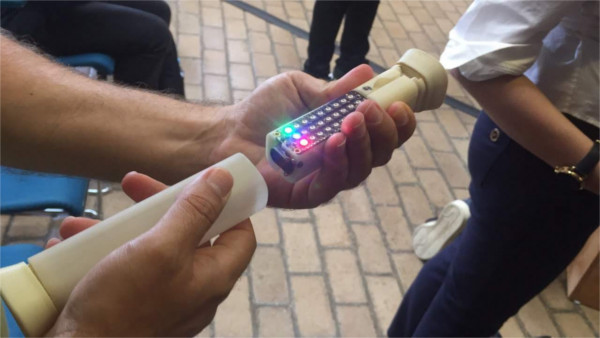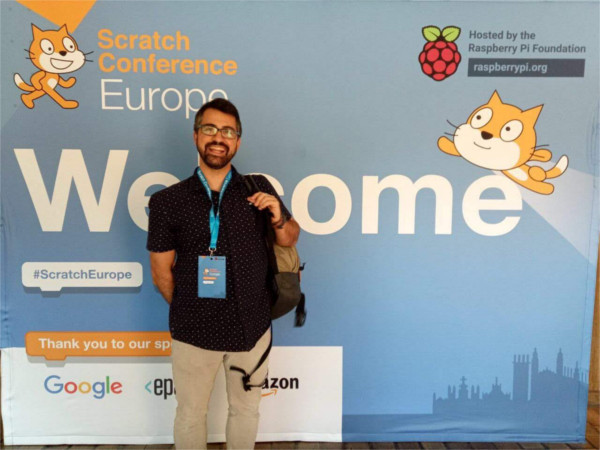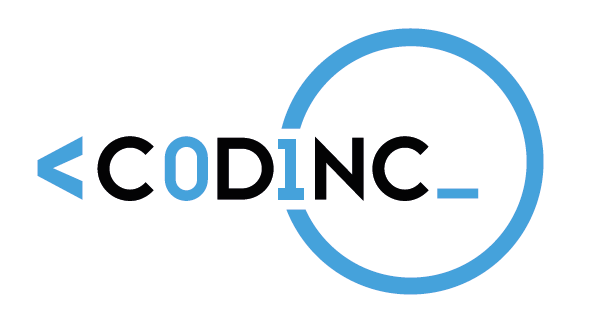
Last August 23, 24 and 25 took place the annual meeting of the Scratch Community in Europe in the beautiful university town of Cambridge, the Scratch Conference Europe 2019.
Scratch is a visual programming language with blocks, and in fact a whole community and an online platform made with free software, aimed at introducing computational thinking, educational programming and digital competencies among boys and girls from 8 years of age. Some of the Codinc curriculum activities use Scratch as a learning platform.
The meeting was aimed primarily at professionals, teachers, educators and teachers, and ultimately anyone in the Scratch community who wants to share and learn about different ways, methodologies and strategies of applying Scratch an educational context.
At the meeting, among many other highlights, were present members of the MIT, Scratch teams, who are the developers of the application, also from the Harvard ScratchEd Team who facilitate the community and develop didactic materials, and the Raspberry Pi Foundation as the local hosts for the 2019 conference.
The meeting, following its usual scheme, offered a series of talks in the to present some of Scratch's most important events and novelties, as well as the future lines of work for the community. In parallel, workshops, discussion groups and project presentation were carried out in a smaller format. With so many interesting things it was difficult to decide where to go!

In one of the main presentations, Mitchel Resnick, the "father" of Scratch, offered a very interesting retrospective of how we came to Scratch's recent version 3.
This new version published in January 2019 incorporates all the learning of over more than 10 years of evolution; it aims to be the most portable, open, inclusive and expandable experience and allows to interact with the physical world and with other applications.
He presented some pretty spectacular data, showing an important growth in Scratch's online user community that had a little over a hundred in 2007 to more than 10 million today! In this regard, he highlighted the role of initiatives such as Code Club or CoderDojo, which have generated thousands of formal or informal groups around the world, around the introduction of computational thinking, robotics and educational programming.
About Scratch in particular, he highlighted, above all, the philosophy behind it, and how it wants to be a platform where children and young people develop their creativity, regardless of the most technical aspects.
Looking at the present moment, he explained how Internet, and especially YouTube channels, have become self-learning spaces where we can find all kinds of tutorials, and that's great for the educational world, and precisely this is where Scratch can come to be a space where to publish tutorials, and in addition these can be interactive. With Scratch, the process of elaboration can be as simple as recording on video, and beyond the incorporation of other aspects much more complex with other multimedia formats (and also incorporating interaction with the viewer / user).
According to Resnick, the creativity of children and young people always exceeds the expectations of those who created the same platform, and explained some examples with testimonials from all over the world. Especially funny and friendly were the examples of projects that made users celebrating their "Scratchniversari" a concept that loved all attendees. Let’s celebrate creativity by sharing our joy every day!
One of the most important concepts for Resnick, and also one of the most representative of the philosophy of Scratch (and that in fact is the subtitle of his book Lifelong Kindergarten), are the 4P: Projects, Passion, Play, Peers . This is where the great potential of this tool and this methodology lies.
-
Project based working, and how Scratch is specially designed to work structured in this way.
-
Work with content that arises from the passion and motivation of the users, that is to say that we can use Scratch to talk about the topic we want, what we most appease or motivate us.
-
The creation and experimentation from playing, as the basis of everything, because ultimately Scratch is a platform for playing, for creating games.
-
And the learning, experimentation and exchange between peers, and especially the power of the community as a space for support and relationship, and generator of shared knowledge.
Resnick insists that it does not make sense to work with Scratch based on well-established projects, educational guides to follow step by step in line (beyond a small presentation to explain how the tool works), but the real potential is to be applied in open methodology and free experimentation, by allowing children and young people to experiment and discover for themselves, to prove, to make a mistake, to share among them what they do. All in all as an educational strategy beyond Scratch and the tools we can use.
Resnick’s presentation for sure was one of the most memorable and inspirational interventions of the whole conference! You can watch the video here.
We also had the opportunity to listen to other interesting talks, such as that of Philip Colligan, who explained how from the RaspberryPi Foundation they want to foster the innovation and the open experimentation of children and young people, giving them the opportunity to work with a truly powerful and versatile hardware, at the same level as any engineer or scientist could use. With their devices they did not want to create a "toy" for young children, or make distinctions between serious projects and others to play, but wanted to provide a powerful tool to experiment and create without limitations. They understood that any technological project needs to incorporate creative and playful aspects, and that if it does, it has many more possibilities to become successful, especially if we consider it from the educational perspective.
An allusion to the movement and culture maker that is so present in educational environments right now.
As a novelty, Colligan presented the latest product: RaspberryPi4, which highlights the improvement in processing power and memory capacity, and the native support for Scratch of its own open-source system Raspbian (Linux-based ).
COLECTIC had the opportunity to present the methodology and curriculum of the CODINC project, to share our experience about how to apply different strategies and methodologies using coding for social inclusion in different educational contexts around Europe. And also how to work with devices and tools to interact with Scratch and other applications, doing practical workshops with Micro:Bit, Makey Makey, drawing, building robots and cartoon creatures …

A small group of representatives from the Catalan community of Scratch explained everything that is done from here, and how interesting are the meetings that are made and how active the community is here.
Just the next meeting of the ScratchEd Meetup Barcelona group will be held at COLECTIC, we invite you to come and share the experience with us!
- Log in to post comments






